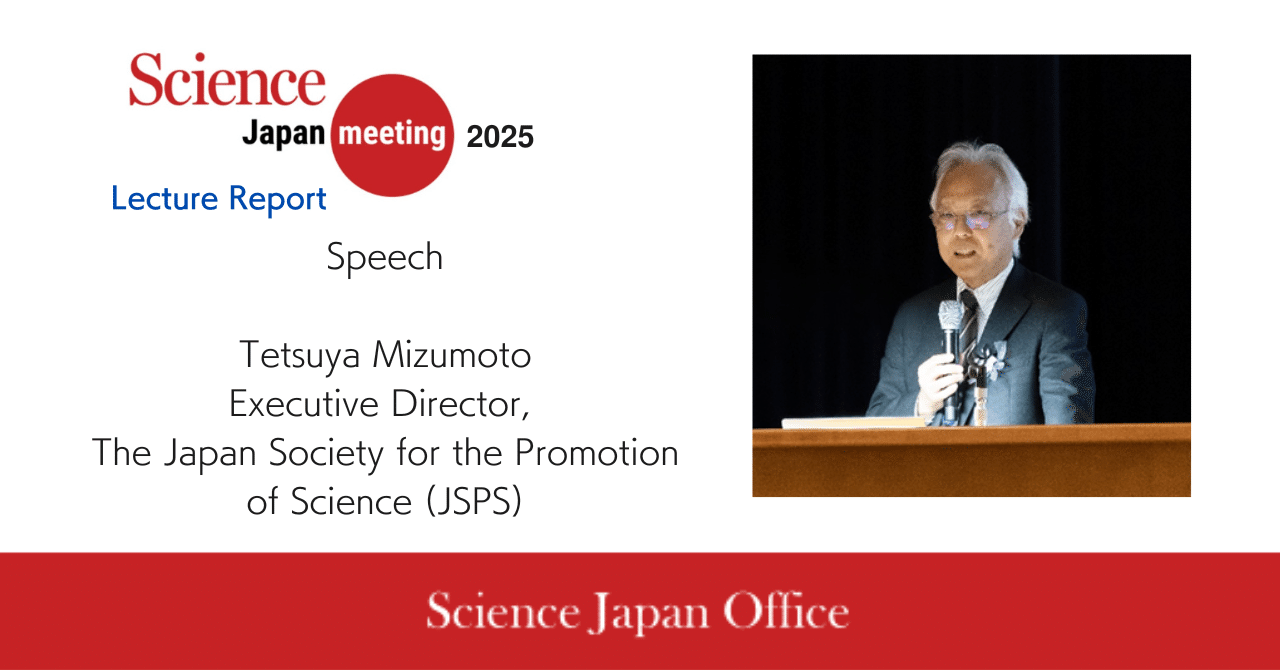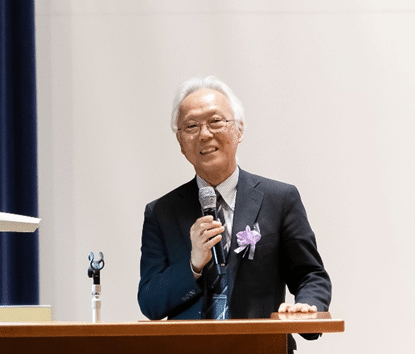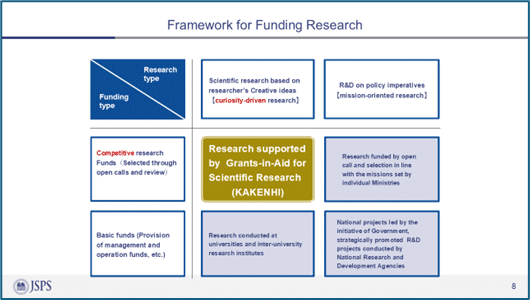
■ Speech:
Title: Research Funding in a Changing Environment
Speaker: Tetsuya Mizumoto,
Executive Director, The Japan Society for the Promotion of Science (JSPS)
Tetsuya Mizumoto, Executive Director of the Japan Society for the Promotion of Science (JSPS), delivered a speech on the evolving landscape of research funding. He began by introducing himself and his background in electrical and electronic engineering, highlighting his long-standing involvement in integrated photonics. Mizumoto then outlined the activities of JSPS, emphasizing its role in supporting curiosity-driven research across all scientific fields, including the natural sciences, humanities, and social sciences.

Mizumoto explained that JSPS was established in 1932 and is unique among Japanese funding agencies for its commitment to research autonomy and diversity. It operates under the Ministry of Education, Culture, Sports, Science and Technology (MEXT) and employs a bottom-up approach, inviting open applications evaluated through peer review. This ensures fairness and transparency in the selection process and decisions based on academic merit.
A key focus of Mizumoto’s presentation was the flagship program, Grants-in-Aid for Scientific Research (KAKENHI). This program supports a wide range of research categories, covering both basic and applied sciences. KAKENHI accounts for nearly one-third of Japan’s competitive research funding, with a budget of approximately 240 billion yen for fiscal year 2024. Mizumoto highlighted recent reforms aimed at improving the evaluation system, research categories, and use of research funds.

Mizumoto also addressed the importance of fostering the next generation of researchers. JSPS offers fellowship programs for young scientists, providing financial support and international training opportunities. These initiatives aim to cultivate future research leaders and enhance Japan’s presence in the global scientific community.
In addition to supporting individual researchers, JSPS promotes international collaboration. Mizumoto emphasized the significance of showcasing Japanese research on the world stage and strengthening international networks. He mentioned programs like the Frontiers of Science Symposium and HOPE Meetings, which facilitate interdisciplinary discussions and networking among young researchers and Nobel laureates and other distinguished scientists.
Mizumoto concluded by discussing JSPS’s efforts to engage with society and raise public interest in science. The Nobel Prize Dialogue, co-organized with Nobel Prize Outreach, aims to elevate public understanding of science and technology. JSPS also runs programs for school students, such as the HIRAMEKI☆TOKIMEKI SCIENCE and Science Dialogue, to inspire interest in scientific research.
In response to a question about the importance of international research networking, Mizumoto emphasized the role of JSPS in enhancing Japanese research activities and integrating them into the global community. He reiterated JSPS’s commitment to supporting curiosity-driven research and fostering collaboration between academia and industry to advance science in Japan.
コメントを残す